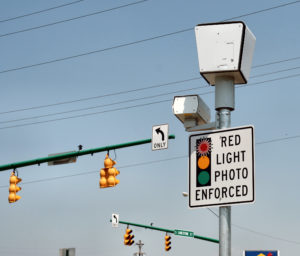Patients injured by medical mistakes and families who lose loved ones following a misdiagnosis or surgical mistake often wait years for their personal injury claims to work their way through the legal system. Reaching a jury trial with a lawsuit against a doctor, nurse or pharmacist who was negligent or incompetent may take as long as a decade. Even getting insurance companies for hospitals, clinics or health care providers to settle a claim can be a process that extends well past any reasonable period.
As a Virginia Beach and Norfolk, Virginia (VA)-based personal injury attorney for more than 25 years, I have spent countless hours reassuring medical malpractice victims and their family members that they would eventually see justice done and receive compensation for the harm or wrongful death suffered.
I read with great interest, then, a report on a new approach to settling malpractice suits that is currently being piloted in Bronx, New York (NY), that is helping plaintiffs’ and defendants’ lawyers quickly resolve claims in ways that ensure medical malpractice clients receive fair compensation for their injuries, lost wages and requirements for ongoing health care. The innovation is called "judge-directed negotiation," and it closely resembles mediation.
Two key differences between judge-directed negotiation and mediation are that, first, only the attorneys and the judge sit down at the table and, second, all parties have access to the expertise of a registered nurse who can educate the parties about the medical facts of the case. The New York Times reported that judge-directed negotiation has proved successful enough that the program will expand to appellate courts throughout New York over the next two years.
The Times noted that judge-directed negotiation benefits medical malpractice clients in several ways. Most importantly, cases reach settlement within months rather than years. Such quick resolutions provide plaintiffs peace of mind and some degree of financial security that they otherwise could have spent a seeming lifetime seeking.
The new approach also moots many of the misinformed and harmful protests about the crippling costs of medical malpractice. Even though insurance, so-called "defensive medicine" and malpractice awards constitute only 2 percent of the $3 trillion annual U.S. health bill, a majority of lawmakers have long beaten the drum for tort reform as a way to lower spending on health care. Judge-directed negotiation has been shown to limit costs for litigating medical malpractice claims and also to result in slightly lower payments to plaintiffs.
While lower plaintiffs’ awards may sound like a bad thing, the difference tends to be on the order of thousands of dollars rather than millions. Also, the speed with which settlements are reached and the surer outcome of the process make up for the smaller average awards.
Current attempts to control — as if that were necessary or fair — medical malpractice costs consist almost entirely of placing caps on monetary damage awards to victims. Virginia has one of the tightest such medical malpractice caps in the United States, and the North Carolina (NC) state legislature on June 9, 2011, for the first time passed a law capping malpractice awards. Judge-directed negotiation seems a much more promising way to assuage the largely unfounded concerns over malpractice costs while also serving the needs of people and families injured by medical negligence, surgical errors and other mistakes made by health professionals.
James B. Battles, who is overseeing the administration of a federal Agency for Healthcare Research and Quality grant that funds the pilot judge-directed negotiation program, told the Times, “We would hope that other states across the country would look at this as a model they might want to replicate,” I agree.
EJL
About the Editors: The Shapiro, Cooper, Lewis & Appleton personal injury law firm, which has offices in Virginia (VA) and North Carolina (NC), edits the injury law blogs Virginia Beach Injuryboard, Norfolk Injuryboard and Northeast North Carolina Injuryboard as pro bono services.









4 Comments
jc
I am totally against judge mediated malpractice settlements. Judges tend to be plaintiff advocates, even when a frivolous malpractice suit is filed. We need specialized medical courts to deal with malpractice not the creaky current malpractice system.
Richard N. (Rick) Shapiro
JC: Thanks for providing your thoughts. I am a bit surprised by your comment. I have heard doctors and their advocates talk about the costs of medical malpractice insurance and one of the factors for both the plaintiff/victims and for the doctor's/insurers is that the costs for medical experts is massive. When judges get involved very early, the "alleged" victim still must have at least one medical expert with a convincing opinion supporting that plaintiff, but if the judge gets active quickly, both sides can save tens of thousands in additional medical expert and related costs in the litigation. I am in favor of this process being tried in NY and do not think judges suggest paying a victim in a frivolous or non-worthy case either.
Mark
JC:
If you want a 'medical court' move to a communist country.
In this country, we have something called the Constitution, and in that Constitution, is the seventh amendment which gives Americans the right to have a civil case heard by a JURY, not a bunch of foxes guarding the hen house.
jc
Nationwide, plaintiff attorneys spend years with malpractice litigation and only win 20% of the time.When they win they take up to 60% of the award.
No sector in American industry has such a poor track record. It would be more efficent, fairer and quicker to have medical courts, like we have workers compensation and manditory arbitration in securities disputes. No other democracy has this punitive system.
Comments for this article are closed.